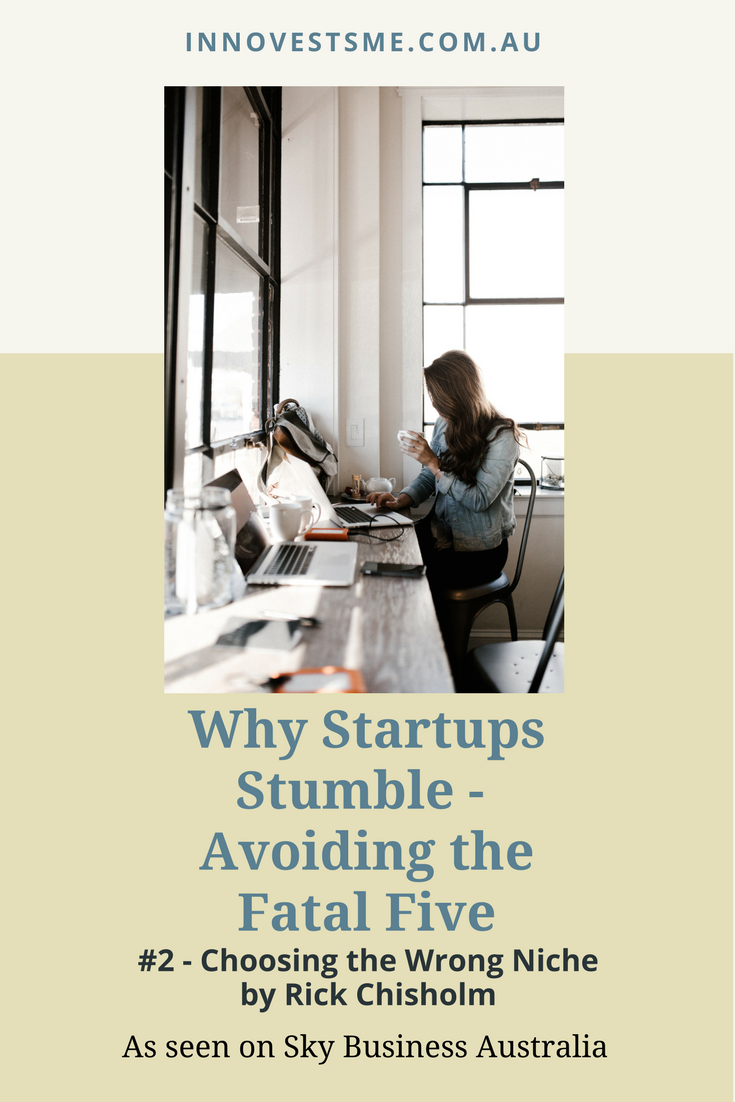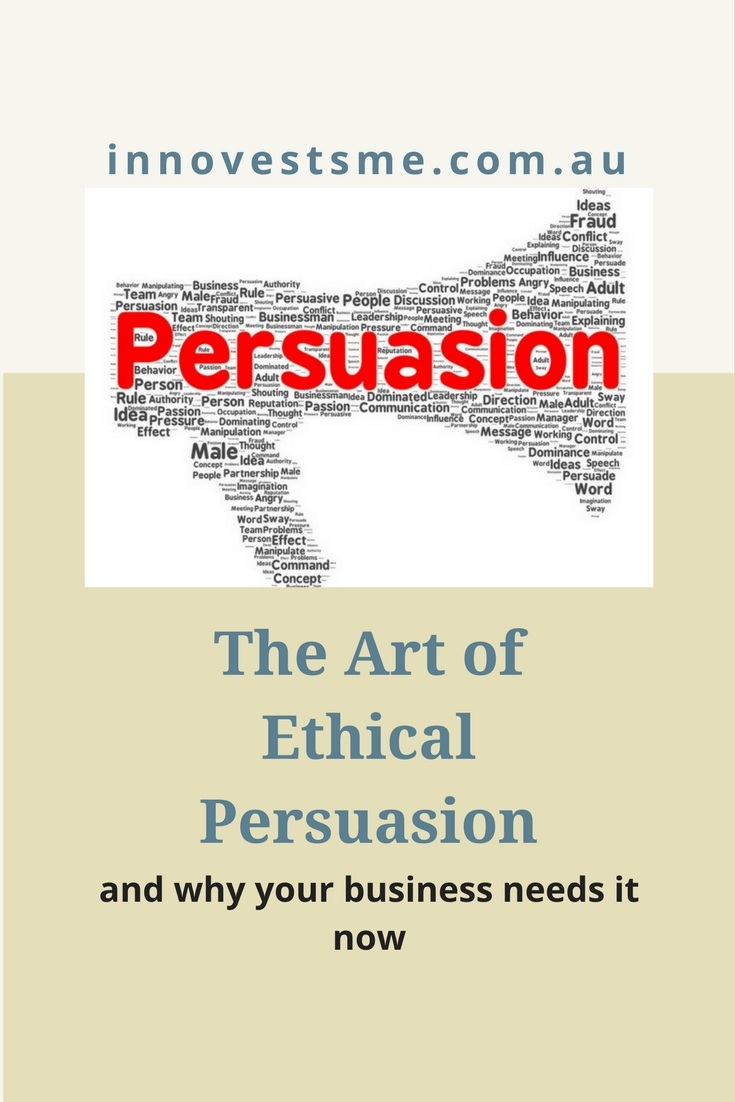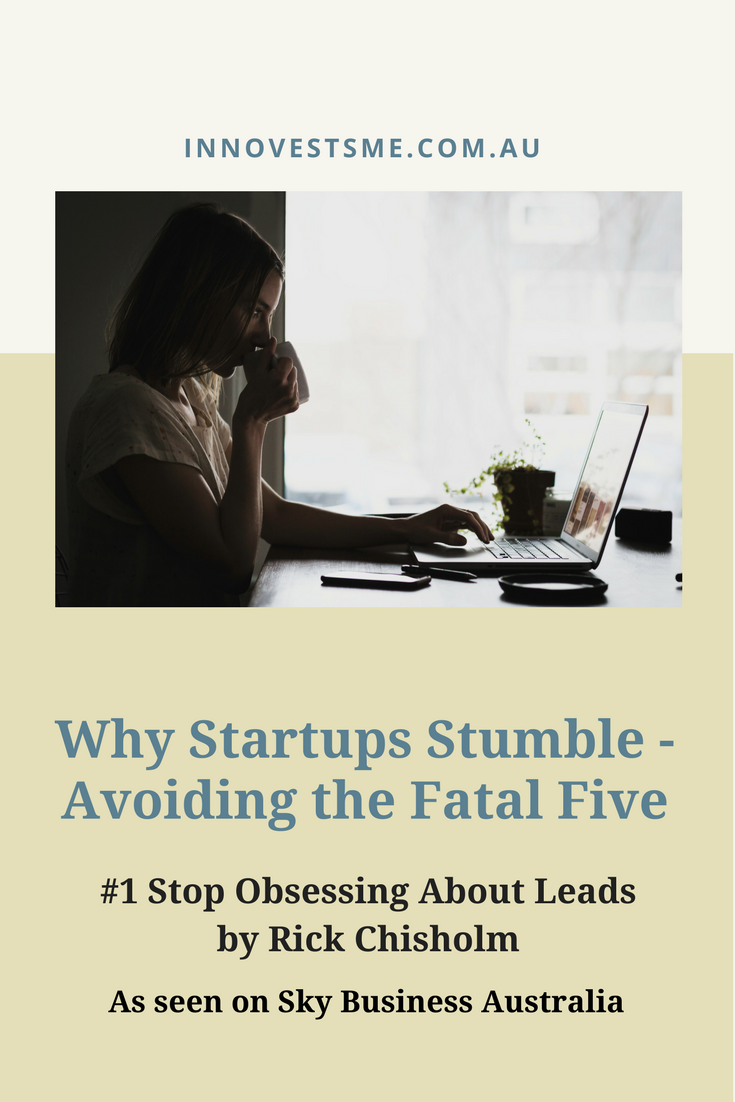Why Startups Stumble – Avoiding the Fatal 5 – #2 Choosing the Wrong Niche

Photo by Andrew Neel on Unsplash
We all know the old truism – one size will not fit all. The beautiful thing about human beings is that we ARE human. Our variety of opinions and behaviours and experiences is what makes the world such a fascinating place, always full of variety, we humans are forever seeking out new things.
We all know this in our guts as small business owners, right? So why then do I see so many small business owners burning themselves out trying to be all things to everybody, in as many markets as they can be, trying to satisfy the largest possible number of potential customers?
If your time and energy were infinite, these sorts of strategies would make perfect sense. But the other thing we know as small business owners is that our time and our energies are VERY finite, and really, there is never enough of either.
There’s no two ways about it – you NEED to make choices in your time management, as small business owners the reality is a lot of our decision making is which bit of the workload we can put off until next week.
So you’re de facto managing your time every into a list of priorities already, allocating your own limited resources to the places they can best be spent. But for a lot of small business owners, when I suggest the same logic needs to be applied to the overall strategy – simply because strategic resources are limited too, their first response is to panic and think about all the imagined lost business I am inviting in through this approach.
But this is where it’s most critical as a small business owner that your decision-making is grounded in real-world data, not an idealised version of how you’d like the world to work.
Because one size does not fit all. Some of your potential customers are much more likely to become paying customers than others. If your product is $15,000 most people are unlikely to be a prospect until they get a great big bonus. You are selling a premium product. But if your product is a car, you’re probably selling a second hand vehicle, so what might appear to be a mass market price actually is only a potential purchase to the much smaller pool of “secondhand car buyers, who are looking for a roughly similar model and age vehicle”.
Where all of this becomes particularly acute is in relation to advertising spending. The reporting around advertising metrics is mostly all but real time these days, and advertisers can get sucked in to the ad sellers’ logic whereby generating clicks and huge website traffic volume can create the impression of immediate results.
But a lot of business owners then forget to listen for the noise that they actually wanted to be paying for – the sound of the cash register ringing.

Photo by Helloquence on Unsplash
Only the clicks that actually translate into real world actions are of value to the business – it might be in store visits, the customer supplying their email address for marketing purposes; it might be online sales, initiating a chat session, booking a demonstration, all of these actions one can demonstrate how the action in question is leading potential customers towards the ringing register.
If you’re running online advertising, there’s enough data at your disposal these days that there is almost always an improvement or optimisation somewhere that allows you to focus your efforts most on those who are most likely to perform a desired action. Volume of traffic is a great metric, but ONLY if it’s free. If you are paying for the clicks, QUALITY of traffic needs to be front and centre the main data that informs your allocation of resources.
And where the interface between your ads and your customers is a good place to measure how well your brand is being perceived and responded to by the most relevant stakeholders, this is really just a proxy for your broader business development efforts.
So we return to the question of how niche targeting relates to your headline strategy. Even when a small business owner can credibly claim they have an almost unlimited potential market for their product or service, the ambition of that claim will defeat that startup if it leads the owners down the path to a scattergun strategy that fails to focus on or prioritise the company’s best prospective niches.
![]()
Photo by rawpixel.com on Unsplash
Avoiding a Fatal Fall – Niche Selection Tips for Small Business Owners
- Don’t go too broad, prioritise a small number of niches for your early phase development and allocate your resources accordingly.
- Assess the competition – a niche which may appear to be poised for growth may already have a number of similar or later stage startup players – how do your resources compare with theirs – and have they more explicitly targeted this niche? If so, your strategy needs to rationally state why you will perform better than them, otherwise you may well be recommended to find a niche that you are better able to serve.
- Assess the “maturity” of the niche – is the market around this niche growing or declining? Very few young people are taking up stamp or coin collecting today, for example, and very few businesses would be advised to double down their focus here. But “niche” opportunities can also exist in mature markets – as other players exit, an established player with a lot of goodwill in the bank with their clients would be well positioned to dominate the remaining market, for example.
- Realistically assess your own expertise. You might be able to generate enough excitement around your business idea to impress your accountant, and maybe even a banker to throw some money at you, but if you’re incapable of translating that same excitement to your customers, the impact will never reach your bottom line. You should be planning to most quickly acquire the customers you will “wow” the most, rather than offering a three star service to everybody.
These are far from the only techniques to ensure you’ve zeroed in on the best niche for your small business’ growth, but these are my four pillars. Have you got any experience with niche strategies that did or didn’t work for you? Drop us a line here, @ admin@innovestsme.com.au




